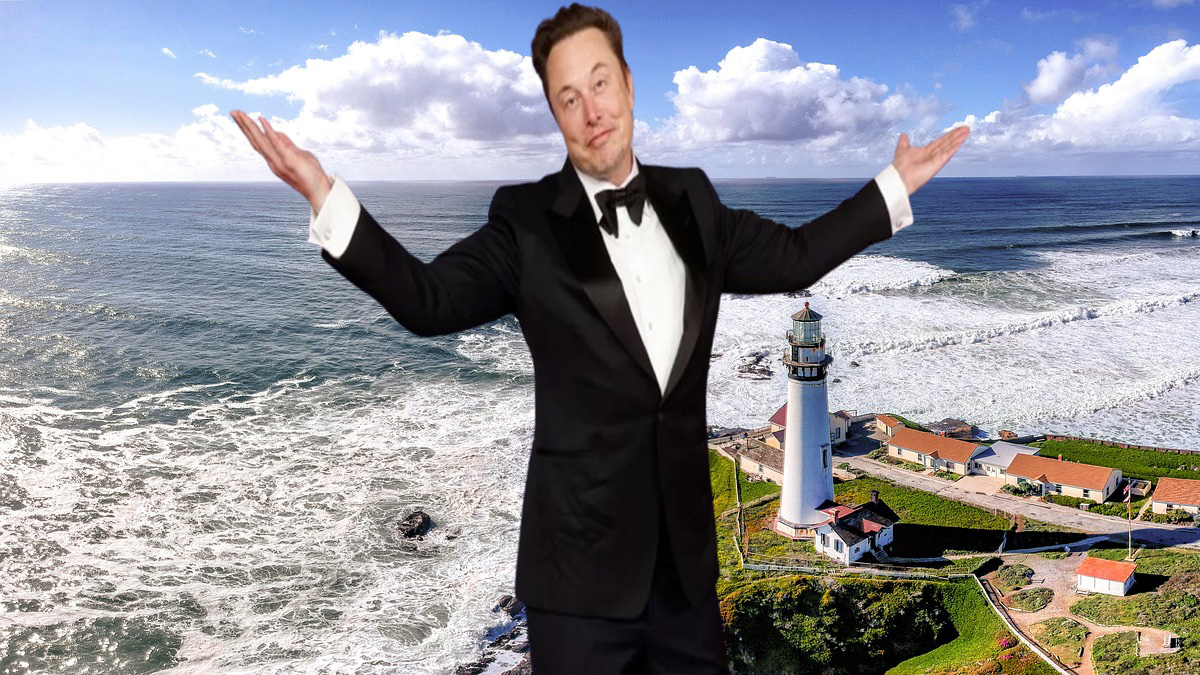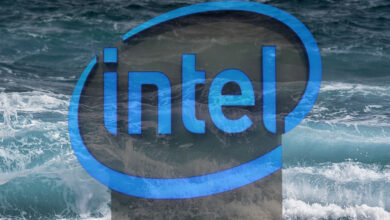Elon Musk’s SpaceX has been charged by a California regulator

Elon Musk’s SpaceX is in hot water with the California Coastal Commission. The commission recently voted to block the company from conducting more rocket launches on the state’s central coast. This decision has sparked a legal battle, with SpaceX accusing the regulator of political discrimination.
The Lawsuit
In a lawsuit filed Tuesday, SpaceX claims that its rights to free speech were violated. The company argues that the commission overstepped its authority when it cited Musk’s controversial comments on his social media platform, X (formerly Twitter), as part of their decision-making process. This raises questions about how personal opinions can influence regulatory actions.
Background on the Commission
The California Coastal Commission is responsible for overseeing development and environmental protection along the coastline. Their role is crucial in balancing economic growth with environmental sustainability. However, this incident highlights potential conflicts between regulatory bodies and innovative companies like SpaceX.
Previous Recommendations
Interestingly, before this vote, an increased number of Falcon 9 rocket launches had been recommended by the U.S. Air Force. This raises eyebrows about whether the commission was ever truly in a position to block such projects. It also underscores how bureaucratic decisions can sometimes clash with federal interests.
The Impact of Social Media
This situation serves as a stark reminder of Musk’s controversial presence on X and its ripple effects on his businesses. His tweets have previously led to fluctuating stock prices and public backlash, but now they may be impacting regulatory relationships too.
What Lies Ahead?
As this legal battle unfolds, it will be interesting to see how it affects both SpaceX and Musk’s other ventures. Will this lead to stricter regulations for tech companies? Or will it prompt a reevaluation of how regulators interact with influential figures in business?
In any case, this clash between innovation and regulation is far from over. As we watch these developments unfold, one thing is clear: Elon Musk’s journey continues to be anything but ordinary.
The Battle Over Space: US Space Force and SpaceX vs. California Coastal Commission
In a bold move, the US Space Force has proposed increasing the number of annual rocket launches at Vandenberg Space Force Base from 36 to 50. This military base, located on the picturesque coast near Santa Barbara, California, is crucial for both national security and commercial space endeavors.
SpaceX plays a pivotal role in this plan. The company not only transports NASA astronauts but also conducts commercial launches to deploy its Starlink satellites into orbit. These satellites aim to provide global internet coverage, bridging gaps in connectivity.
However, the proposal hit a snag when the California Coastal Commission stepped in. At an October 10 meeting, members voted 6 to 4 against increasing the launch frequency. Their concerns primarily revolved around environmental impacts and safety issues related to more frequent rocket launches.
The debate raises important questions about balancing technological advancement with environmental stewardship. Supporters argue that increased launches could bolster national security and enhance internet access worldwide. Critics worry about potential harm to local ecosystems and communities.
As discussions continue, both sides must find common ground. The future of space exploration may depend on it. With growing interest in space travel and satellite technology, this issue is far from settled.
The outcome will shape not just California’s coastline but also the trajectory of space innovation in the United States. Will progress prevail over preservation? Only time will tell as these powerful entities navigate their next steps in this cosmic chess game.
SpaceX’s Legal Battle: A Clash of Concerns Beyond Coastal Effects
In a recent legal complaint filed in California Central District Court, SpaceX has brought to light significant concerns raised by commissioners that extend far beyond the coastal effects of its operations. The complaint highlights an array of issues that appear to distract from the primary environmental discussions.
Employment Practices Under Scrutiny
One major point of contention involves SpaceX’s employment practices. These practices have come under fire from both the U.S. Justice Department and former employees. Allegations include workplace discrimination and unsafe working conditions, which have sparked lawsuits and drawn public attention. This focus on employment issues raises questions about corporate responsibility and accountability in high-stakes industries.
Starlink and Global Geopolitics
Another layer to this complex situation is the use of Musk’s Starlink satellite network in global geopolitical conflicts. Commissioner Mike Wilson voiced concerns about Musk’s control over what he described as “one of the most extensive communications networks on the planet.” This statement underscores fears regarding the potential for misuse of such power, especially in politically charged environments.
Political Ramifications
Wilson also pointed out Musk’s recent comments about political retribution, suggesting a troubling intersection between technology, politics, and personal agendas. The implication is clear: when one individual holds such vast influence over communication channels, it poses risks not just locally but globally.
SpaceX’s Accusations: A Clash of Politics and Innovation
SpaceX has found itself in the eye of a political storm. The company recently accused a commission of displaying “overt, and shocking, political bias.” This accusation stems from comments made during a recent meeting, particularly those by Commissioner Gretchen Newsom.
Newsom’s remarks struck a chord. She criticized Elon Musk for his “hopping about the country” and for what she described as “spewing and tweeting political falsehoods.” Her comments focused on Musk’s controversial statements regarding FEMA while he simultaneously offered free Starlink internet access to hurricane victims.
This situation raises important questions. Is it appropriate for commissioners to voice such opinions? Or does this reflect a deeper issue within regulatory bodies?
The Broader Implications
The implications of these accusations extend beyond SpaceX. They touch on how politics can influence technology and innovation. When leaders in the tech industry engage with political issues, it can lead to friction with regulatory agencies.
Musk’s approach often blurs the lines between business and politics. His willingness to take risks is part of what makes SpaceX successful. However, this boldness can also provoke backlash from those in power.
Public Perception
Public perception plays a crucial role here. Many admire Musk for his ambitious vision and commitment to progress. Yet others see him as divisive, especially when he engages in political debates that overshadow his technological achievements.
As discussions continue, it’s essential for both sides to remain focused on the bigger picture: advancing technology while ensuring responsible governance.
The Controversial Influence of Elon Musk: A Closer Look
Elon Musk, a name synonymous with innovation and ambition, has recently stirred controversy. His endorsement of former President Donald Trump for reelection has sparked discussions across various platforms. But it’s not just politics that has drawn attention; misinformation surrounding Hurricane Helene is also at the forefront.
Misinformation About Hurricane Helene
Musk took to social media to share rumors and false claims about the federal government’s response to Hurricane Helene. This behavior contributes to a larger issue: the spread of misinformation online. As people seek reliable information during crises, misleading posts can create confusion and panic.
His portrayal of President Joe Biden and Vice President Kamala Harris as incompetent only adds fuel to an already heated political climate. Such statements can undermine public trust in leadership during critical times.
Previous Controversies
This isn’t Musk’s first brush with contentious topics. He has previously promoted racist conspiracy theories targeting immigrants and Jewish communities. These actions raise serious questions about accountability in influential figures.
After an assassination attempt on Trump, Musk made a now-deleted post that questioned why no one was attempting similar actions against Biden or Harris. This troubling statement highlights a dangerous trend where rhetoric can incite violence or promote harmful ideologies.
Legal Battles Ahead
Amidst these controversies, SpaceX finds itself embroiled in legal challenges. The company argues that its launches are federally regulated activities, exempt from state oversight by agencies like the California Coastal Commission. They are seeking judicial confirmation on this matter along with monetary damages.
Joshua Smith, a public information officer for the California Coastal Commission, declined to comment on the lawsuit when approached by CNN. This silence leaves many questions unanswered regarding regulatory authority over such significant operations.
Conclusion
Elon Musk’s influence extends far beyond technology and space exploration; it touches upon politics, social issues, and legal frameworks. As he navigates through controversies involving misinformation and legal battles, the implications of his actions will resonate widely. It serves as a reminder of how powerful voices can shape narratives—both positive and negative—in our society today.
In an age where information spreads rapidly, discerning fact from fiction becomes increasingly vital for everyone involved—be it leaders or everyday citizens.







